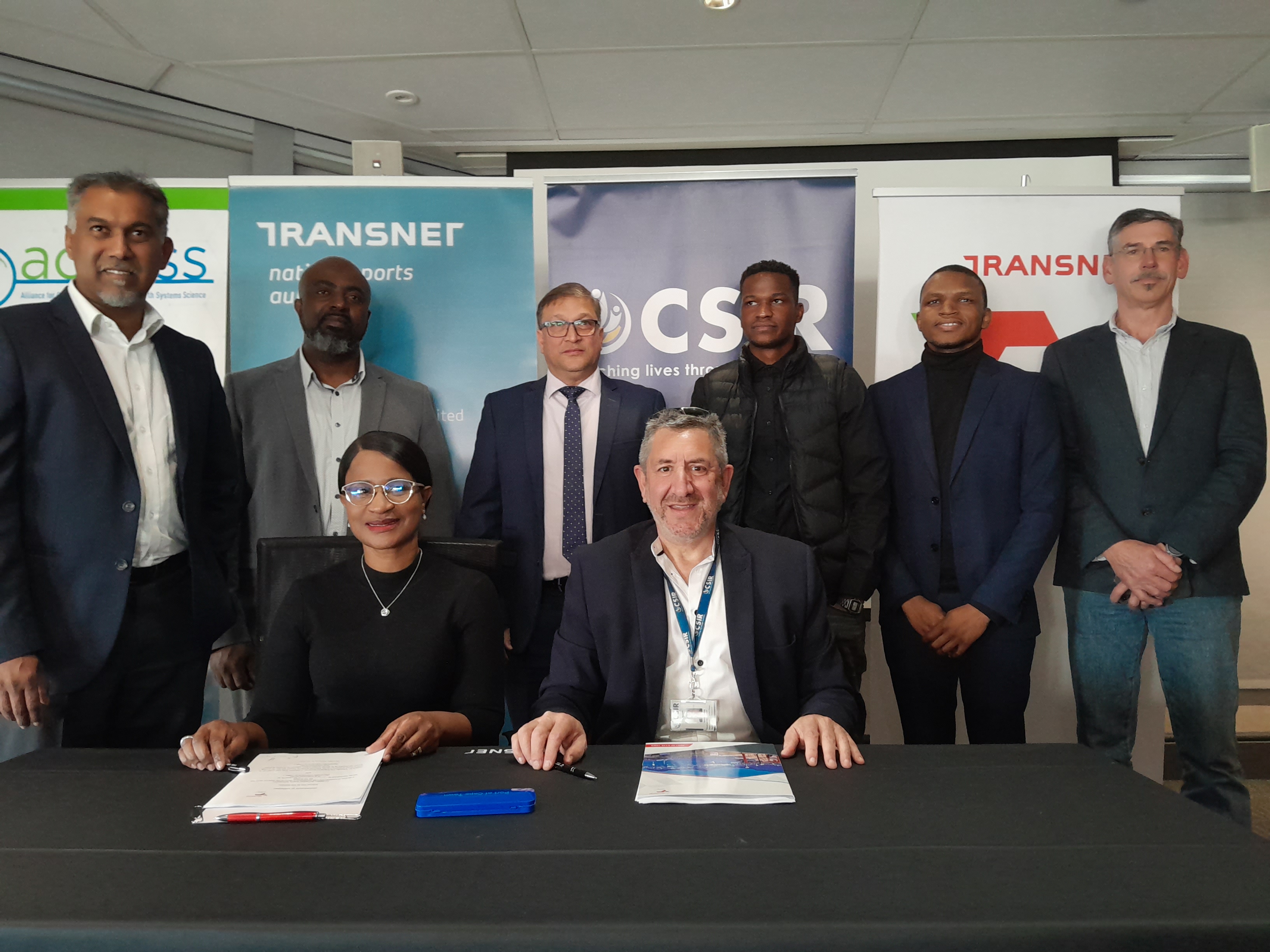Gusting winds in Cape Town are not a new problem; however, they are a persistent problem at one of the busiest ports in South Africa where, anecdotally, the frequency and intensity of the wind, and associated environmental conditions, are an ongoing challenge. The CSIR, as part of a research consortium, will now examine the problem and seek solutions for wind disruptions in the Port of Cape Town, in collaboration with the Transnet National Ports Authority (TNPA).
On 4 August 2023, TNPA signed a memorandum of agreement (MoA) with the CSIR-hosted Alliance for Collaboration on Climate and Earth Systems Science (ACCESS) programme to formally launch this programme.
The becalmed picturesque scenery in the port served as the perfect backdrop for what turned out to be a stunning, wind-free winter’s day. Port manager Rajesh Dana welcomed all the stakeholders representing academia, industry, clients of the port and port officials to the gathering that was held in Port Control in Cape Town.
The signing was attended by TNPA ACCESS and representatives from the CSIR, the University of KwaZulu-Natal (UKZN), the University of the Western Cape, Witwatersrand (Wits) University and the University of Cape Town (UCT). The work is funded by the National Research Foundation and the Extreme Events in the Benguela Upwelling System programme of the Belmont Forum. Collectively, this partnership intends to establish a series of research sub-projects aimed at understanding the impact of extreme wind disruption on operations for the integrated maritime transport logistics chain at the port. The interdisciplinary research will allow climate specialists, and engineering and economics researchers to contribute towards improved management of extreme wind events and assess their impacts on the regional economy.
Deputy chief engineer at TNPA Magenthran Ruthenavelu provided an outline of the project and its scope at the signing ceremony. “The pilot project has been working successfully and the work that has been undertaken is helping the port a lot at the moment. Our partnership with experts and academics to devise tangible solutions is long overdue. We are extremely proud to partner with CSIR-ACCESS,” Ruthenavelu stated.
Globally, we have entered new-record territory with current climate and weather patterns, which affect all aspects of society that serve and support economic activities, including ports. CSIR senior researcher and ACCESS Director Dr Neville Sweijd said, “Due to increased demand for port services, we need to understand what disruptive wind patterns look like now and what they will look like in the future. This project is an opportunity to do research that directly impacts people.”
Over the last few years, the Port of Cape Town lost, on average, 1 200 hours of operational time annually due to extreme wind disruption. Extreme wind gusts can result in terminal equipment becoming unsafe to operate, thereby requiring a shutdown and causing delays and backlogs. This leads to congestion inside and outside the port, resulting in vessels being at anchorage for extended periods or even bypassing the port. Several industries, including the time-sensitive fruit industry, are severely impacted by these disruptions, which can affect them along the production value chain all the way to the farm.
The MoA between TNPA and the research consortium will provide researchers with access to important data sources that are required for the project, while the TNPA will continue to facilitate engagements with key clients and stakeholders.
TNPA has committed to contributing the data, supporting the young researchers, utilising CSIR-ACCESS capacity-building opportunities, promoting the project among stakeholders, and keep all parties involved informed and updated. Building human capacity as part of implementation of the project was made possible and prioritised with the involvement of students; notably CSIR researcher Vuyo Ndayi (UCT), Khuthadzo Khangale (Wits) and Mlungisi Gumede (UKZN).
During her closing remarks, Advocate Phyllis Difeto representing the TNPA said climate change and environmental impacts need to be better understood for improved port management. “The agreement we just signed has been in the making for the past two years and came to fruition today. Along with other work being conducted by the CSIR, it will assist us to adapt to climate change, as well as other related environmental phenomena in addition to the wind at the port, such as mist and fog.”
Representatives of the TNPA shared that, going forward, they look forward to the development of pro-active warning systems, innovative engineering solutions, and how to adapt to wind conditions as informed by the research.

and Neville Sweijd attending the signing of the MoA between TNPA and the CSIR-hosted programme, ACCESS, and other research institutions.
Contact Person: Dr Neville Sweijd, @email,